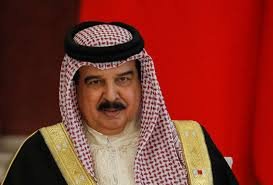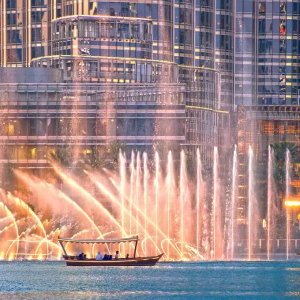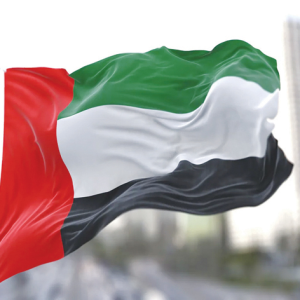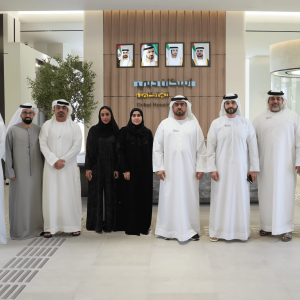King of Bahrain : The Kingdom of Bahrain, a prominent Gulf nation, is ruled by King Hamad bin Isa Al Khalifa, a leader whose governance has shaped the country’s modern identity. As the reigning monarch since 1999, King Hamad has overseen significant political, economic, and social transformations, solidifying Bahrain’s status as a key player in the region. His leadership has been marked by modernization, economic diversification, and diplomatic initiatives that have strengthened Bahrain’s global standing.
Early Life and Ascension to the Throne
King Hamad was born on January 28, 1950, into the ruling Al Khalifa family. He received his early education in Bahrain before pursuing further studies at The Leys School in the United Kingdom and the prestigious Mons Officer Cadet School. His military training equipped him with strategic and leadership skills, which later played a crucial role in his governance.
In 1964, King Hamad was appointed as the Crown Prince of Bahrain. Over the years, he took on several key governmental and military roles, eventually ascending to the throne on March 6, 1999, following the passing of his father, Emir Isa bin Salman Al Khalifa. Shortly after, he declared Bahrain a constitutional monarchy, assuming the title of King in 2002, marking a new era for the nation.

King of Bahrain : Political Reforms and Governance
Upon assuming power, King Hamad introduced a series of reforms aimed at modernizing Bahrain’s governance structure. His most notable political initiative was the National Action Charter in 2001, which received overwhelming public support in a referendum. This charter paved the way for democratic reforms, including the establishment of a bicameral parliament, granting more political participation to the citizens.
Under his leadership, Bahrain has embraced a more inclusive approach to governance while maintaining the country’s stability amid regional challenges. His administration has worked to balance modernization with the preservation of cultural and traditional values.

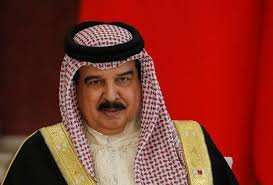
Economic Development and Vision 2030
King Hamad has been a strong advocate of economic diversification, reducing Bahrain’s reliance on oil revenues and fostering growth in sectors like finance, tourism, and technology. In 2008, he launched Vision 2030, a strategic roadmap for Bahrain’s economic future, aiming to create a competitive, sustainable, and fair economy.
Key initiatives under Vision 2030 include:
- Expansion of the financial sector, making Bahrain a regional banking and fintech hub.
- Investments in tourism and infrastructure, including major projects like the Bahrain International Airport expansion.
- Development of renewable energy resources to promote sustainability.
- Enhancements in education and workforce training to equip citizens with future-ready skills.
Foreign Relations and Diplomacy
King Hamad has played a vital role in strengthening Bahrain’s international relations, particularly with Gulf Cooperation Council (GCC) countries, the United States, and the United Kingdom. Bahrain hosts the U.S. Navy’s Fifth Fleet, reinforcing its strategic alliance with Washington. Additionally, Bahrain has been actively involved in regional peace initiatives, including the Abraham Accords, which normalized relations with Israel.
The King has also maintained strong ties with Saudi Arabia and the UAE, aligning Bahrain with key regional economic and security frameworks. His diplomatic approach has positioned Bahrain as a bridge between East and West, fostering trade and cooperation.
Social Progress and Human Rights
Under King Hamad’s rule, Bahrain has made strides in social development, focusing on education, healthcare, and women’s empowerment. The country has seen advancements in:
- Women’s Rights: Women in Bahrain have gained greater access to education, employment, and political participation. In 2006, Bahrain appointed its first female minister, and women continue to hold leadership roles in government and business.
- Healthcare: Investments in healthcare infrastructure have improved medical services and positioned Bahrain as a medical tourism destination.
- Education: The government has prioritized STEM education and vocational training to align with future industry demands.
However, Bahrain has faced criticism from international human rights organizations regarding political freedoms and press liberties. The government continues to navigate these challenges while maintaining national stability.
Challenges and the Road Ahead
Despite its achievements, Bahrain faces economic and geopolitical challenges. The country has been working to address fiscal deficits, strengthen its non-oil economy, and navigate regional tensions. The implementation of Vision 2030 remains central to Bahrain’s long-term growth, with a focus on sustainability, digital transformation, and global competitiveness.
Conclusion
King Hamad bin Isa Al Khalifa’s leadership has been instrumental in shaping modern Bahrain. His vision for economic progress, diplomatic engagement, and social development continues to drive the nation forward. As Bahrain adapts to global changes, the King’s legacy will be defined by his efforts to balance tradition with modernization, ensuring prosperity for future generations.
Do follow Uae stories for more Updates
Understanding Abu Dhabi Toll Gate Timings: A Comprehensive Guide

